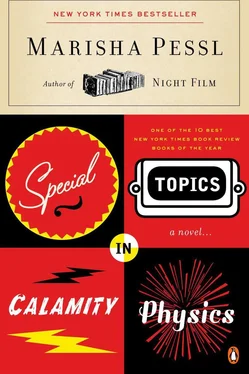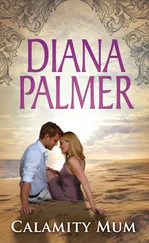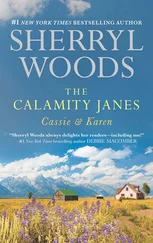“Blue, I can’t fully distinguish Gwendolyn’s sophisticated upper-class accent from Cicely’s girlish country one. Try to make them more distinct and, if I may give you a little Orson Wellian direction here, understand, in this scene they’re quite angry. Do not lie back and pretend you’re sitting down to a leisurely tea. No ! The stakes are high ! They both believe they’re engaged to the same man! Ernest!”
States later, eyes watery and focus sore, our voices hoarse, in the highway’s evergreen twilight Dad would turn on, not the radio, but his favorite A. E. Housman Poetry on Wenlock Edge CD. We’d listen in silence to the steel-drum baritone of Sir Brady Heliwick of the Royal Shakespeare Company (recent roles included Richard in Richard III , Titus in Titus Andronicus , Lear in King Lear ) as he read “When I Was One-and-Twenty” and “To an Athlete Dying Young” against a sinuous violin. Sometimes Dad spoke the words along with Brady, trying to outdo him.
Man and boy stood cheering by,
And home we brought you shoulder-high.
“Could have been an actor,” said Dad, clearing his throat.
By examining the U.S. Rand-McNally map on which Dad and I marked with a red pushpin every town in which we’d lived, however brief the period (“Napoleon had a similar way of marking out his regime,” Dad said), I calculate that, from my years six to sixteen we inhabited thirty-nine towns in thirty-three states, not including Oxford, and I thus attended approximately twenty-four elementary, middle and high schools.
Dad used to joke that in my sleep I could pound out the book Hunting for Godot: Journey to Find a Decent School in America , but he was being unusually harsh. He taught at universities where “Student Center” referred to a deserted room with nothing but a foosball table and a vending machine with a few candy bars bravely tipped toward the glass. I, however, attended sprawling, freshly painted schools with slender corridors and beefy gyms: Schools of Many Teams (football, baseball, spirit, dance) and Schools of Many Lists (attendance, honor, headmaster’s, detention); Schools Full of Newness (new arts center, parking lot, menu) and Schools Full of Oldness (which used the words classic and traditional in their admissions brochures); schools with snarling, sneering mascots, schools with pecking, preening mascots; the School of the Dazzling Library (with books smelling of glue and Mr. Clean); the School of the Bog Library (with books smelling of sweat and rat droppings), the School of Teary-Eyed Teachers; of Runny-Nosed Teachers; of Teachers Never Without Their Lukewarm Coffee Mug; of Teachers Who Cakewalked; of Teachers Who Cared; of Teachers Who Secretly Loathed Every One of the Little Bastards.
When I introduced myself into the culture of these relatively well-developed nations, with firmly established rules and pecking orders, I didn’t immediately don the status of the Drama Queen with Shifty Eyes or the Obnoxious Brain Who Wore Meticulously Ironed Madras. I wasn’t even the New Girl, as that glittery title was always stolen from me within minutes of my arrival by someone fuller lipped and louder laughed than I.
I’d like to say I was the Jane Goodall, a fearless stranger in a stranger land doing (groundbreaking) work without disturbing the natural hierarchy of the universe. But Dad said, based on his tribal experiences in Zambia, a title only has meaning when others fully support it, and I’m sure if someone asked the Tanned Sporto with Shiny Legs, she’d say if I had to be a Jane, I wasn’t the Jane Goodall, nor was I the Plain Jane, the Calamity Jane, the What Ever Happened to Baby Jane, and certainly not the Jayne Mansfield. I was more along the lines of the Pre-Rochester Jane Eyre, which she’d call by either of its pseudonyms, the I Don’t Know Who You’re Talking About or the Oh Yeah, Her.
A brief description might be due here (Visual Aid 2.0). Obviously, I am the half-obscured, dark-brown-haired girl wearing glasses who looks apologetically owl-like (see “Scops Owl,” Encyclopedia of Living Things , 4th ed.). I am paninied between (starting in the lower right-hand corner and continuing clockwise): Lewis “Albino” Polk, who would soon be suspended for bringing a handgun to Pre-Algebra; Josh Stetmeyer, whose older brother, Beet, was arrested for dealing LSD to eighth graders; Howie Easton, who went through girls the way a deer hunter in a single day of shooting could go through hundreds of rounds of ammunition (some claimed his list of conquests included our art teacher, Mrs. Appleton); John Sato, whose breath always smelled like an oil rig; and the much ridiculed, six-foot-three Sara Marshall who, only a few days after this class photo was taken, left Clearwood Day, supposedly to go revolutionize German women’s basketball in Berlin. (“You’re the spitting image of your mother,” Dad commented when first observing this photo. “You have her prima ballerina grit and grace — a quality all the plains and uglies of the world would kill for.”)

VISUAL AID 2.0

VISUAL AID 2.1
I have blue eyes and freckles and stand approximately five-foot-three in socks.
I should also mention that Dad, despite having received embarrassing marks from the Bridges on both his Technical and Freestyle programs, had that brand of good looks which only reach full force at the onset of middle age. As you can see, while at the University of Lausanne, Dad’s look was uncertain and squinty — his hair too angrily blond, his skin too severely fair, his large frame uneven and indecisive (Visual Aid 2.1). (Dad’s eyes are considered hazel, but during this period, simple “haze” was a more fitting description.) Over the years, however (and due in a large part to the African kilnlike conditions), Dad had hardened nicely into one with a coarse, slightly ruined appearance (Visual Aid 2.2). This made him the target, the lighthouse, the light bulb, of many women across the country, particularly in the over-thirty-five age group.
Dad picked up women the way certain wool pants can’t help but pick up lint. For years I had a nickname for them, though I feel a little guilty using it now: June Bugs (see “Figeater Beetle,” Ordinary Insects , Vol. 24).
There was Mona Letrovski, the actress from Chicago with wide-set eyes and dark hair on her arms who liked to shout, “Gareth, you’re a fool, ” with her back to him, Dad’s cue to run over to her, turn her around and see the Look of Bitter Longing on her face. Only Dad never turned her around to see the Bitter Longing. Instead, he stared at her back as if it were an abstract painting. Then he went into the kitchen for a glass of bourbon. There was Connie Madison Parker, whose perfume hung in the air like a battered piñata. There was Zula Pierce of Okush, New Mexico, a black woman who was taller than he was, so whenever Dad kissed her she had to bend down as if peeking through a peephole to see who was ringing her bell. She started out calling me “Blue, honey,” which, like her relationship with Dad, slowly began to erode, becoming “Bluehoney” and then “Blueoney,” ultimately ending with “Baloney.” (“Baloney had it in for me from the very beginning!” she screamed.)

Читать дальше















